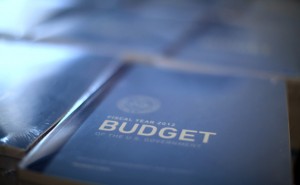September 4, 2017
 Small business owners are earning increasing visibility in Western society, and are increasingly applauded for their courage in setting off on their own. Founders pour their hearts and souls into both startups and other types of small businesses, and for many people their lives revolve around their company. But even once your small business is off the ground, you’ll likely need to take out loans of some type to cover expenses and to help you expand your company. Read on for some basics on the different types of loans that you could take out, depending on your business’ specific needs.
Small business owners are earning increasing visibility in Western society, and are increasingly applauded for their courage in setting off on their own. Founders pour their hearts and souls into both startups and other types of small businesses, and for many people their lives revolve around their company. But even once your small business is off the ground, you’ll likely need to take out loans of some type to cover expenses and to help you expand your company. Read on for some basics on the different types of loans that you could take out, depending on your business’ specific needs.
Business Line of Credit
A business line of credit offers you readily available cash whenever you need it for your business. Like a line of credit for a credit card, there is a fixed maximum, but you only pay interest on the amount of money that you actually use. Also as with a credit card, funds are there for your business when you need them, even if what you really need is physical cash.
Different lenders will have different terms with your business line of credit, but some may require that you routinely pay off the entire amount. Even if your specific line of credit only requires you to pay interest, it is always a good idea to pay off portions of the principal as regularly as possible.
Business Credit Cards
Business credit cards are very similar to the personal credit cards that you already have open. Unlike a business line of credit, withdrawing cash from a business credit card typically incurs high fees, but there are other benefits to business credit cards. Depending on the specific card, you can earn cash back bonuses or “points” on various purchases, which may help you cut costs in the future. You can also build your business’ credit, even if you already have the capital you need, by making relatively small purchases on your business credit card and paying them off quickly.
Term Loans
Small businesses can apply for term loans, which would give you a lump sum of money that must be repaid within an agreed-upon amount of time. Term loans do also accrue interest, which typically must be paid back monthly. Term loans may be repayable in extremely variable time periods, from several months to several years. These loans are best for business that are looking to make big purchases or investments, but need a one-time financial boost in order to do so.
Equipment Loans
If your business needs to purchase new equipment or machinery (including computers, printers, or other industry-specific needs), equipment loans may be the way to go. These are especially beneficial when a business has no other costs that require a loan, except for the equipment costs. Equipment loans are typically made for the exact amount of the desired equipment, and may sometimes be kept for the entire lifespan of the equipment. As with all loans, equipment loans will accrue interest, which will need to be paid back regularly.
In addition to these more standard loan types, there are also some less traditional loans, such as competitive loans offered to small businesses by online companies such as LendGenius. To learn more about these non-traditional finance options, and the potential benefits for your business, visit their website.
Tags:
Budget,
budgeting,
Business,
credit,
economy,
financial planning,
loans,
money
September 1, 2012
 There are numerous examples of people adding to their home or changing rooms completely; it’s a great way to make your home better and saves the hassle of moving house just to get a new conservatory or a bigger kitchen.
There are numerous examples of people adding to their home or changing rooms completely; it’s a great way to make your home better and saves the hassle of moving house just to get a new conservatory or a bigger kitchen.
The only problem with that is that it can be terribly expensive and rising costs can drain your bank account. Although there are no estate agent fees or solicitor intervention, you do have to worry about how it’s going to be built, the equipment that will be required and dealing with your local authority if you need planning permission.
There are ways, however, that would enable you to save money on such necessities.
Doing the work yourself (or as much as possible!)
Many people who plan to build on their own home are trained in the relative skills that will enable them to do most of the work. The costs of hiring labour can be vast and if they go over the proposed schedule, then you’ll have to pay out more money.
You might find that some businesses will purposely provide a longer schedule to make more money, so it can be worthwhile to shop around to see who can do the work in a decent amount of time and for a reasonable price if you can’t do the work yourself.
If you are able to do some work yourself, you may still need to outsource someone to do something like loler testing and inspection to make sure you can go ahead with your build and get your certification for safety.
Hire, don’t buy equipment
If you are able to take on the work yourself, you’ll obviously need to get the correct equipment, whether it be lifting equipment, handling equipment or drills and mortar. However, make sure that you hire and not buy, because you’ll only use this equipment once and so it’ll be fie to hire lifting equipment from someone like Lifting Gear UK.
The expense of owning such equipment is very high and remember you’ll have to keep in the best of shape so that means maintaining it and making sure it’s always working safely.
Complete the project all in one go
Cost often spiral when projects get dragged out further and further because your budget usually only applies to the planned schedule. The longer the project lasts, the more labour costs will be required and most likely equipment and material costs too.
Tags:
Budget,
Budget Planning,
financial planning,
Home,
money savings,
personal finance,
savings
May 11, 2012
 The tools of budgeting all come down to a basic process of keeping track of income and expenses in one location. This makes it possible to target areas of over-spending and arrange a projected budget that is both realistic and oriented towards saving. Just as the old days of using a hand-held calculator and accounting pad gave way to computerized spreadsheets and stand-alone programs, newer methods have been supplanted in recent years by internet-based programs.
The tools of budgeting all come down to a basic process of keeping track of income and expenses in one location. This makes it possible to target areas of over-spending and arrange a projected budget that is both realistic and oriented towards saving. Just as the old days of using a hand-held calculator and accounting pad gave way to computerized spreadsheets and stand-alone programs, newer methods have been supplanted in recent years by internet-based programs.
Tweaking categories and establishing limits is still an individualized matter, but it is no longer necessary to transfer the numbers from each account into a centralized system. Online money management tools are capable of accessing accounts for which they are given your login information, but this feature is not a given due partly to security reasons.
Many programs are available, and choosing the best depends upon which you find most compatible with your financial needs. Since all these programs are free, advertising should not be a surprise. Some of the most popular tools for financial planning are:
Mint
Mint is the most versatile and user-friendly of the options available. Login information is easily entered for a fast and comprehensive accounting of everything from monthly spending patterns to total net worth. One of the more valuable features is its ability to gather as much information as is stored in the account. Investment accounts entered into the system will be tracked on a weekly basis.
The downside for some users will be the automated budgeting. Preset totals are attached to every category, and it will take some time to configure these for your individual needs. Until you do, expect to face reminders and overspending warnings regularly. Initial setup can take around an hour, and it will take more time to get the program matched up with your financial life.
Wesabe
This program offers some of the same features as Mint, such as the ability to pull data from multiple accounts and automatically compile net worth, liquid assets and debt. If you have been using Quicken, this is a good choice for now. Mint does not yet support importing from Quicken, but Wesabe does support this option. One feature Wesabe does boast is an active user forum.
Importing from Quicken is the only way to get around the need to manually categorize types of spending, which is one drawback. Another downside is that Wesabe does not function with some accounts, which means you are stuck without information or having to manually enter it.
Manual Upload
Many free programs are available for monitoring your finances on the go, and most of them require manual upload of information. Before thinking this is more trouble than it’s worth, consider some of the advantages of sites like BudgetPulse, moneyStrands, and Buddi.
Since there is no account information entered, there is no risk of your accounts being compromised by hacking of these third-party sites. They are also more functional due to simplicity. Manual uploading may seem like time travel to the past after experiencing Mint, but these alternatives often include community, small business, and other group tools.
It is worth the time to find a program that best fits your financial situation and personality. Budgeting is the first step to overcoming debt and planning for the future. The only thing you’ll lose from a poor choice is time.
Tags:
Budget,
budgeting,
financial planning,
Financial Tools,
money,
Online Tools,
Save Money,
savings
April 24, 2012
 The Budget is rarely an occasion for celebration, and Chancellor George Osborne’s announcement that plans to increase fuel duties by 3p per litre would not be dropped has been met with negative reception from many British motorists, who feel they are already being charged too much for fuel.
The Budget is rarely an occasion for celebration, and Chancellor George Osborne’s announcement that plans to increase fuel duties by 3p per litre would not be dropped has been met with negative reception from many British motorists, who feel they are already being charged too much for fuel.
These new fuel duties will go into effect from August 2012, and a number of motoring groups have voiced their criticism of the initiative, which will cause cash-strapped motorists to be even more out of pocket. With the price of unleaded petrol rising above £1.40 in many parts of the UK, motorists will be paying more than ever before at the petrol pump.
Osborne has defended his decision by pointing to his previous scrapping of the fuel tax escalator in the March 2011 budget, which he explained would have made fuel 6p more expensive at present, if still in effect. This has reportedly saved motorists a total of £4.5 billion according to the Guardian newspaper, but many people feel more could have been done to combat the rising cost of motor fuel.
It’s not only fuel prices that were affected by the recent budget either, with the CO2 emissions threshold for company cars also being reduced from 160g per km to 130g from April 2013, which will penalise employees driving less fuel-efficient vehicles and medium-sized cars in general. However, diesel drivers may benefit from the change, with the dropping of the 3% diesel tax supplement from 2016.
If you’re concerned about the impact of the Budget on your day-to-day driving, switching to a more fuel efficient vehicle could be the most effective way to shield yourself from rising fuel prices, although this is not an economical option for everyone. Finding out how your driving habits could be consuming more fuel than necessary can also be very useful for helping a full tank last longer, such as avoiding stop-start driving or taking alternative routes to avoid traffic congestion.
Now is the ideal time to make these changes to your driving habits, with fuel price increases showing no signs of slowing down. Over the last two years, the monthly fuel bill for a family with two petrol cars has reportedly risen over the last year, and unleaded petrol is expected to have hit £1.50 by the time the new fuel duties are in effect in August. Comparing car insurance to find the best deals and buying used parts for repairs could help you save money in other aspects of car ownership.
Tags:
Budget,
budgeting,
Car,
economy,
money,
personal finance
April 20, 2012
 It seems that every time you go grocery shopping it is a little more expensive than the last time. Prices seem to be consistently creeping upwards by a few more cents all the time. Weather damaging the crops, animals falling ill, gas prices increasing – these and many more factors are such that their impact will be resilient enough to be felt at the grocery store as well. Instead of dreading shopping use these tips to help save money and keep your grocery bill in check –
It seems that every time you go grocery shopping it is a little more expensive than the last time. Prices seem to be consistently creeping upwards by a few more cents all the time. Weather damaging the crops, animals falling ill, gas prices increasing – these and many more factors are such that their impact will be resilient enough to be felt at the grocery store as well. Instead of dreading shopping use these tips to help save money and keep your grocery bill in check –
Coupons
Coupons are a great way of saving money on groceries. There are some Sunday papers that still offer coupons to cut out. In order to get more of them do a quick search on the Internet and you will come across websites which will feature coupons. Some will need to be printed while in case of others you would simply need to load the coupon to your favorite grocery store card. Now if the coupon is used for an item that is on sale it can result in added savings. Some grocery stores double and even triple the value of a coupon up to at least a dollar.
Price Book
This is one of the easiest things to do and can take the form of a notebook or even an excel sheet. Since there are certain items like canned goods which are purchased every time, they could be written down per page or column if using a spreadsheet. List the stores that you shop at on the left and then list the normal price that is usually paid. This type of system makes it easier for tracking popular items and then comparing the sale ads to see if the best price can actually be picked up at.
Meals
Write down the meals that you would like to cook for the time in between your shopping. This makes it easier to look through the ads and see if the needed ingredients are available on sale anywhere. Planning meals helps to make the money last even longer when shopping for grocery.
Cook from Scratch
No matter how many members are in a household it always seems to be easier to come home and serve a packaged meal. This is nice but it does cost almost double than if you made it yourself. It is understandable that after a long day at work you are worn out and exhausted but it is equally important to realize that a crock pot on the counter is the perfect way to make your meals. Just put everything in it before getting ready for work and upon your arrival at night it is already cooked and ready to serve.
List
As you thumb through the ads and gather your coupons make a list while proceeding downwards. This helps you stick to buying only what is needed and hence ensures maintaining of the budget. Sometimes when walking through the store there will be items on sale that might seem tempting. However, before grabbing these it would be wise to think if the offer is a good one and if the items are truly needed at home.
Tags:
Budget,
finance,
financial planning,
Grocery,
money,
personal finance,
savings
 Small business owners are earning increasing visibility in Western society, and are increasingly applauded for their courage in setting off on their own. Founders pour their hearts and souls into both startups and other types of small businesses, and for many people their lives revolve around their company. But even once your small business is off the ground, you’ll likely need to take out loans of some type to cover expenses and to help you expand your company. Read on for some basics on the different types of loans that you could take out, depending on your business’ specific needs.
Small business owners are earning increasing visibility in Western society, and are increasingly applauded for their courage in setting off on their own. Founders pour their hearts and souls into both startups and other types of small businesses, and for many people their lives revolve around their company. But even once your small business is off the ground, you’ll likely need to take out loans of some type to cover expenses and to help you expand your company. Read on for some basics on the different types of loans that you could take out, depending on your business’ specific needs.




Recent Comments